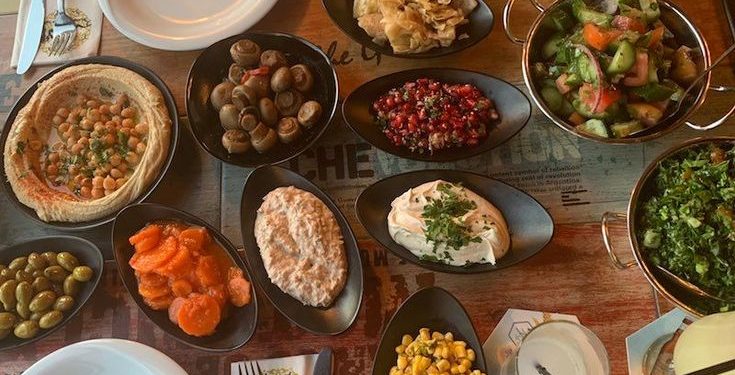Israeli cuisine is a dynamic fusion of flavors, traditions, and influences from the Middle East, Mediterranean, North Africa, Eastern Europe, and beyond. This unique culinary landscape mirrors the country’s rich history and multicultural society. In this article, we’ll take a gastronomic journey through the distinctive features that make Israeli cuisine a true culinary gem.
- Fresh and Wholesome Ingredients:
Israeli cuisine places a strong emphasis on fresh, seasonal, and locally-sourced ingredients. The country’s climate and fertile soil enable the cultivation of a wide variety of fruits, vegetables, herbs, and spices. Olive oil, grains, legumes, and dairy products are essential components of many dishes.
- The Influence of the Mediterranean Diet:
At the heart of Israeli cuisine lies the Mediterranean diet, which prioritizes vegetables, whole grains, lean protein, and healthy fats. This approach to eating contributes to the overall healthiness and appeal of Israeli dishes.
- The Prolific Use of Herbs and Spices:
Herbs and spices play a crucial role in Israeli cuisine, adding depth and complexity to dishes. Commonly used seasonings include fresh parsley, cilantro, mint, cumin, coriander, za’atar (a spice blend with thyme, oregano, sesame seeds, and sumac), and tahini (a creamy sesame paste).
- Iconic Dishes:
Israeli cuisine boasts a variety of iconic dishes that are beloved both locally and internationally:
- Hummus: Creamy chickpea dip often served with olive oil, tahini, and warm pita bread.
- Falafel: Deep-fried balls or patties made from ground chickpeas or fava beans, typically served in pita bread with vegetables and tahini sauce.
- Shawarma: Slices of marinated and roasted meat, usually served in a pita or laffa bread with tahini, vegetables, and pickles.
- Sabich: A sandwich made with fried eggplant, hard-boiled eggs, tahini, and salad in a pita.
- Shakshuka: A breakfast dish consisting of poached eggs in a spicy tomato and pepper sauce, often served with bread for dipping.
- Israeli Salad: A refreshing salad made with diced cucumbers, tomatoes, onions, and bell peppers, dressed with olive oil, lemon juice, and herbs.
- Fusion of Culinary Traditions:
Israel’s diverse population, comprising Jews, Arabs, Christians, Druze, and immigrants from around the world, has led to a fusion of culinary traditions. This multicultural influence is evident in dishes like “Mizrahi” (Eastern Jewish) and “Ashkenazi” (Eastern European Jewish) foods, as well as Arab and Palestinian specialties.
- Street Food Culture:
Israeli street food is renowned worldwide. Street vendors and food markets offer a wide array of delicious and affordable options. From shawarma stalls to falafel stands and sabich joints, there’s something for every palate.
- The Sabbath Tradition:
The Jewish Sabbath, observed from Friday evening to Saturday evening, has a significant impact on Israeli cuisine. Families gather for festive meals, often featuring dishes like challah bread, slow-cooked stews, and rich desserts.
Israeli cuisine is a vibrant and evolving culinary landscape that celebrates diversity, tradition, and innovation. Its emphasis on fresh ingredients, Mediterranean influences, and multicultural fusion make it a fascinating and flavorful journey for food enthusiasts. Whether you’re savoring the creamy goodness of hummus or enjoying the aromatic spices of shakshuka, Israeli cuisine offers a tantalizing taste of the country’s cultural richness. It’s a culinary adventure not to be missed.












